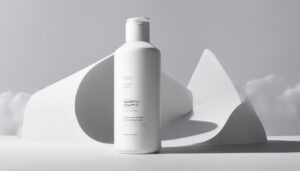In the competitive world of skin care manufacturing, GMP certification plays a crucial role in ensuring the production of high-quality skincare products. By adhering to Good Manufacturing Practices (GMP), skin care manufacturers can mitigate risks, ensure product safety and quality, and maintain consistent standards that meet customer expectations.
While GMP certification is not mandatory in the United States and Canada, it is highly encouraged by regulatory authorities such as the FDA and Health Canada. This certification demonstrates a manufacturer’s commitment to producing safe and effective skincare products, giving consumers peace of mind that the products they use are of the highest quality.
Key Takeaways:
- GMP certification is essential for skin care manufacturers to ensure the production of high-quality skincare products.
- Adhering to GMP guidelines helps mitigate risks, maintain product safety, and uphold consistent standards.
- While not mandatory, GMP certification is highly encouraged by regulatory authorities.
- GMP certification demonstrates a manufacturer’s commitment to product quality and consumer safety.
- Consumers can trust GMP-certified manufacturers to deliver safe and effective skincare products.
What is Cosmetic GMP?
Cosmetic GMP, or Good Manufacturing Practices, is a set of comprehensive guidelines that are essential for cosmetic businesses to manufacture safe and high-quality products. These guidelines cover every aspect of the manufacturing process, including the sourcing of raw materials, the production process itself, packaging, and storage.
The main objective of cosmetic GMP guidelines is to minimize the risks of contamination and ensure consistent product quality. By following these guidelines, cosmetic manufacturers can mitigate the potential hazards associated with the production process, resulting in safer products for consumers.
“Cosmetic GMP guidelines play a crucial role in maintaining the integrity and quality of cosmetic products. They help cosmetic manufacturers to adhere to strict quality control procedures, ensuring that their products meet the highest safety and quality standards.”
Implementing cosmetic GMP involves strict adherence to procedures that encompass facility design and maintenance, equipment calibration, raw material handling, product testing, and documentation. By meticulously following these guidelines, cosmetic manufacturers can consistently produce cosmetics that are safe, effective, and meet the expectations of consumers.
What is Cosmetic GMP?
Cosmetic GMP refers to the comprehensive guidelines that help cosmetic businesses manufacture safe and high-quality products. It covers all aspects of the manufacturing process, including raw materials, production, packaging, and storage. GMP guidelines aim to minimize the risks of contamination and ensure product consistency and quality. They are essential for maintaining customer satisfaction and brand reputation.
The Benefits of Following GMP
Following GMP guidelines offers numerous benefits for skincare and cosmetics businesses. By adhering to these guidelines, manufacturers can ensure the production of safe and high-quality cosmetics, reducing the risk of adverse reactions or health issues in consumers. GMP provides a framework that helps businesses mitigate risks associated with production, ensuring that all products meet strict quality control standards.
One of the key benefits of following GMP is improved product safety. GMP guidelines outline strict regulations for the handling and storage of raw materials, minimizing the risk of contamination. By implementing proper sanitation practices and quality control measures, manufacturers can produce cosmetics that are free from harmful substances and meet consumer expectations for safety.
“GMP certification provides consumers with the assurance that the products they use are safe and reliable.”
GMP also helps reduce the risk of production errors and inconsistencies. By implementing standardized processes and documentation, manufacturers can ensure that each batch of cosmetics is produced consistently, meeting the specified quality standards. This not only enhances the overall quality of the products but also improves customer satisfaction and brand reputation.
Moreover, following GMP guidelines allows skincare and cosmetics businesses to conduct their own inspections and identify areas for improvement in their operations. This proactive approach enables manufacturers to continuously enhance their production processes and ensure the highest level of product quality, which in turn helps to build trust with consumers and drive brand loyalty.
The Benefits of Following GMP:
- Ensures product safety and reduces the risk of contamination
- Improves product consistency and overall quality
- Enhances customer satisfaction and brand reputation
- Allows for self-inspection and continuous improvement
By prioritizing GMP compliance, skincare and cosmetics businesses can reap the rewards of producing safe, high-quality products that meet consumer expectations. GMP certification provides consumers with the assurance that the products they use are safe and reliable, fostering trust and loyalty in the brand. With GMP guidelines in place, manufacturers can ensure that their cosmetics are not only effective but also meet the highest standards of quality.
| GMP Benefits | Keywords |
|---|---|
| Product safety | safe cosmetics |
| Consistency and quality | high-quality cosmetics |
| Customer satisfaction | |
| Brand reputation |
The Role of ISO 22716 in Cosmetic GMP
ISO 22716 plays a significant role in defining and implementing cosmetic GMP standards on an international level. These standards provide comprehensive guidelines for cosmetic manufacturers to ensure the safety and quality of their products. By adhering to ISO 22716, manufacturers can demonstrate their commitment to meeting rigorous quality control measures and maintaining the highest standards in product development and production processes.
ISO 22716 Guidelines
The ISO 22716 guidelines cover various aspects of cosmetic manufacturing, including personnel, facilities, equipment, materials, and production processes. They outline specific requirements for each stage of the manufacturing process, ensuring product safety, efficacy, and consistent quality.
Compliance with ISO 22716 involves implementing protocols for good manufacturing practices, establishing appropriate hygiene and cleanliness standards, and ensuring proper handling, storage, and labeling of raw materials, finished products, and packaging materials. The guidelines also focus on maintaining accurate documentation of processes, including batch records, specifications, and quality control test results. Additionally, ISO 22716 advocates for ongoing training and professional development for personnel involved in the manufacturing and quality control of cosmetic products.
GMP Regulations and ISO 22716
ISO 22716 is widely recognized and incorporated into GMP regulations in various countries, including the United States, Canada, and the European Union. It provides a framework for manufacturers to meet legal requirements and regulatory obligations that govern the production and distribution of cosmetics.
By aligning with ISO 22716, manufacturers can demonstrate their compliance with international standards, which often helps streamline the regulatory process and facilitates market access. ISO 22716 also fosters consistency and harmonization among different countries’ GMP regulations, enabling global cosmetic companies to operate with a unified and standardized approach.
| ISO 22716 Benefits | Explanation |
|---|---|
| Enhanced Product Quality | ISO 22716 ensures that manufacturers follow strict quality control measures, resulting in consistently high-quality cosmetic products. |
| Consumer Confidence | Compliance with ISO 22716 provides consumers with assurance that the cosmetics they use have undergone rigorous quality and safety testing. |
| International Market Access | Adhering to ISO 22716 can help manufacturers gain market access in different countries by meeting common regulatory standards. |
| Operational Efficiency | ISO 22716 guidelines promote efficient manufacturing processes, reducing the risk of errors, rework, and waste. |
| Brand Reputation | Compliance with ISO 22716 demonstrates a commitment to product quality and consumer safety, enhancing brand reputation. |
Implementing GMP in Skin Care Manufacturing
Implementing GMP (Good Manufacturing Practices) in skin care manufacturing is crucial to ensure the production of safe and high-quality products. By following GMP guidelines, skin care manufacturers can mitigate the risks of contamination, maintain consistent product quality, and uphold consumer safety. The implementation of GMP involves several key considerations to create a well-structured and controlled manufacturing environment.
Facility and Equipment
A critical aspect of GMP implementation is ensuring that buildings and facilities are designed to minimize contamination risks. Skin care manufacturers must establish separate areas for different production stages, such as raw materials storage, manufacturing, and packaging. Additionally, the equipment used in the manufacturing process should be clean and well-maintained to prevent cross-contamination and ensure product integrity.
Raw Material Handling and Testing
GMP guidelines also emphasize the proper handling and storage of raw materials. Skin care manufacturers must have documented procedures for receiving, inspecting, and storing raw materials to prevent contamination or degradation. Implementing laboratory controls and testing methods is essential to verify the quality and safety of raw materials before they are used in the production process.
Production Process Documentation
To maintain consistency and traceability, GMP requires skin care manufacturers to document the production process thoroughly. This includes standard operating procedures (SOPs) for each manufacturing step, batch records, and quality control checks. Clear documentation ensures that the production process is replicable, allows for effective quality control, and facilitates investigations in case of any deviations or issues.
Laboratory Controls
In addition to ensuring the safety and quality of raw materials, GMP implementation involves implementing laboratory controls to test for contaminants and ensure product efficacy. Skin care manufacturers must establish analytical testing methods, conduct routine product testing, and have systems in place to address any deviations or out-of-specification results. Laboratory controls play a vital role in validating the effectiveness and safety of the manufactured skin care products.
By adhering to these GMP guidelines, skin care manufacturers can create a controlled manufacturing environment that emphasizes product safety and quality. GMP implementation ensures that production processes are well-documented, facilities are designed to minimize contamination risks, and raw materials are handled and tested properly. These measures contribute to the consistent production of safe and high-quality skin care products that consumers can trust.
GMP Certification and Consumer Protection
GMP certification is a critical factor in ensuring consumer protection when it comes to cosmetics. By implementing Good Manufacturing Practices (GMP), cosmetic manufacturers can adhere to strict guidelines that prioritize the safety and quality of their products. GMP-certified manufacturers are committed to rigorous testing and quality control procedures, reducing the risk of adverse reactions and other health concerns for consumers.
When a cosmetic product is GMP-certified, it means that the manufacturer has undergone inspections and audits to ensure compliance with industry standards. This certification serves as an assurance to consumers that the products they use are safe, reliable, and of high quality. By choosing GMP-certified cosmetics, consumers can have peace of mind knowing that their well-being is a priority.
Consumer protection is a paramount concern, particularly in the cosmetic industry where product safety and quality play crucial roles. GMP certification acts as a safeguard against the potential risks associated with substandard cosmetics. By certifying their products, manufacturers demonstrate their commitment to providing safe and effective cosmetics that meet rigorous standards.
| Benefits of GMP Certification for Consumer Protection |
|---|
| Ensures that cosmetics undergo rigorous testing for contaminants |
| Mitigates the risk of adverse reactions, allergies, or other health issues |
| Provides consumers with confidence in the safety and reliability of products |
| Enhances overall brand reputation and consumer trust |
Overall, GMP certification plays a vital role in consumer protection by guaranteeing that cosmetic products meet stringent quality and safety standards. By choosing GMP-certified cosmetics, consumers can confidently incorporate these products into their skincare routines, knowing that their well-being is being prioritized by the manufacturer.
The Impact of GMP Non-Compliance
GMP non-compliance can have significant consequences for cosmetic manufacturers, compromising both their business operations and the safety of their products. One of the most serious ramifications is the need for product recalls. When a company fails to adhere to GMP guidelines, there is a higher risk of producing unsafe or contaminated cosmetics. This can result in consumer complaints, adverse reactions, or even the discovery of harmful substances in the products. In such cases, product recalls become necessary to protect consumers and mitigate any further harm.
In addition to the potential harm to consumers, GMP non-compliance can also lead to the production of poor-quality products. When manufacturers do not follow GMP guidelines, they may overlook quality control measures, leading to inconsistencies in the manufacturing process. This can result in products that are ineffective, improperly formulated, or do not meet the promised claims. Producing subpar products not only damages the reputation of the company but also undermines consumer trust and loyalty.
GMP non-compliance can have financial repercussions as well. In addition to the costs associated with product recalls, manufacturers may face fines, legal actions, or regulatory penalties for failing to meet GMP standards. Furthermore, non-compliance can lead to inefficiencies in the manufacturing process, resulting in higher production costs. The company may have to invest additional resources to rectify the non-compliant practices, including training employees, improving facility infrastructure, or implementing more robust quality control systems.
| Consequences of GMP Non-Compliance |
|---|
|
“GMP non-compliance can have severe consequences for cosmetic manufacturers, including product recalls, poor-quality products, legal and financial repercussions, and damage to brand reputation.”
Overall, GMP non-compliance poses a significant risk to the success and reputation of skin care manufacturers. By disregarding GMP guidelines, they put their customers’ safety at risk, potentially leading to adverse reactions or other health concerns. Additionally, non-compliance can result in the production of subpar products and damage to the company’s brand image. It is imperative for skin care manufacturers to prioritize GMP compliance to avoid these negative impacts and ensure the delivery of safe and high-quality cosmetics to consumers.
Conclusion
In conclusion, GMP certification is essential for skin care manufacturers to ensure the production of safe and high-quality skincare products. By following GMP guidelines, businesses can mitigate risks associated with production, maintain consistent quality standards, and guarantee product safety. While not mandatory in all regions, GMP certification is highly encouraged by regulatory authorities such as the FDA and Health Canada.
GMP guidelines encompass all aspects of the manufacturing process, including raw materials, production, packaging, and storage. Implementing these guidelines helps minimize contamination risks, maintain product consistency, and improve overall quality. By adhering to GMP standards, skin care manufacturers can build consumer trust and loyalty, ensuring the delivery of safe and effective products.
It is important to note that GMP non-compliance can have severe consequences for cosmetic manufacturers, including product recalls, damage to brand reputation, and legal repercussions. By prioritizing GMP compliance, skin care manufacturers can avoid these negative impacts and uphold consumer protection. With GMP certification, manufacturers can demonstrate their commitment to producing safe and reliable skincare products.
To ensure the production of safe skincare products, skin care manufacturers should strongly consider obtaining GMP certification. By meeting the rigorous standards set forth by GMP guidelines, manufacturers can provide consumers with the assurance that their products are of the highest quality and adhere to strict quality control procedures. GMP certification not only safeguards consumer health but also helps build a strong reputation in the competitive skin care industry.
FAQ
What is GMP certification?
GMP certification stands for Good Manufacturing Practice certification. It is a crucial certification for skin care manufacturers to ensure the production of safe and effective skincare products.
Why is GMP certification important for skin care manufacturers?
GMP certification is important because it helps businesses mitigate risks associated with production, ensure product safety and quality, and maintain consistent high-quality standards.
Is GMP certification mandatory in the US and Canada?
GMP certification is not mandatory in the US and Canada, but it is highly encouraged by regulatory authorities such as the FDA and Health Canada.
What is Cosmetic GMP?
Cosmetic GMP refers to comprehensive guidelines that help cosmetic businesses manufacture safe and high-quality products. It covers all aspects of the manufacturing process, including raw materials, production, packaging, and storage.
What are the benefits of following GMP guidelines?
Following GMP guidelines ensures product safety, reduces the risk of contamination and production errors, and improves overall product quality. It also increases customer confidence, enhances brand reputation, and drives brand loyalty.
What is ISO 22716?
ISO 22716 is an internationally accepted standard for cosmetic GMP. It provides guidelines and requirements for cosmetic manufacturing processes and is incorporated into GMP regulations in various countries, including the US, Canada, and the EU.
What does implementing GMP in skin care manufacturing involve?
Implementing GMP in skin care manufacturing involves considerations such as minimizing contamination risks, maintaining clean equipment, properly handling raw materials, documenting and controlling production processes, and implementing laboratory controls.
How does GMP certification protect consumers?
GMP certification ensures that cosmetic products undergo rigorous testing for contaminants and adhere to strict quality control procedures. This reduces the risk of adverse reactions, allergic responses, or other health issues in consumers.
What are the consequences of GMP non-compliance?
Non-compliance with GMP guidelines can result in product recalls, contamination issues, poor quality products, inefficient manufacturing processes, higher costs, and damage to brand reputation.
Shay labs is here to help!
Shay Labs is a trusted name in the cosmetic manufacturing industry. With years of experience and a strong commitment to quality, Shay Labs offers a wide range of private label manufacturing services for beauty, skin, hair, pet, and personal care products. Their state-of-t with numerous up-to-date certifications including GMP and ISO. Our state-of-the-art facilities and dedicated team ensure that every product is created with the utmost care and attention to detail. Contact Shay Labs today to discuss your next project. We’re here to help!





